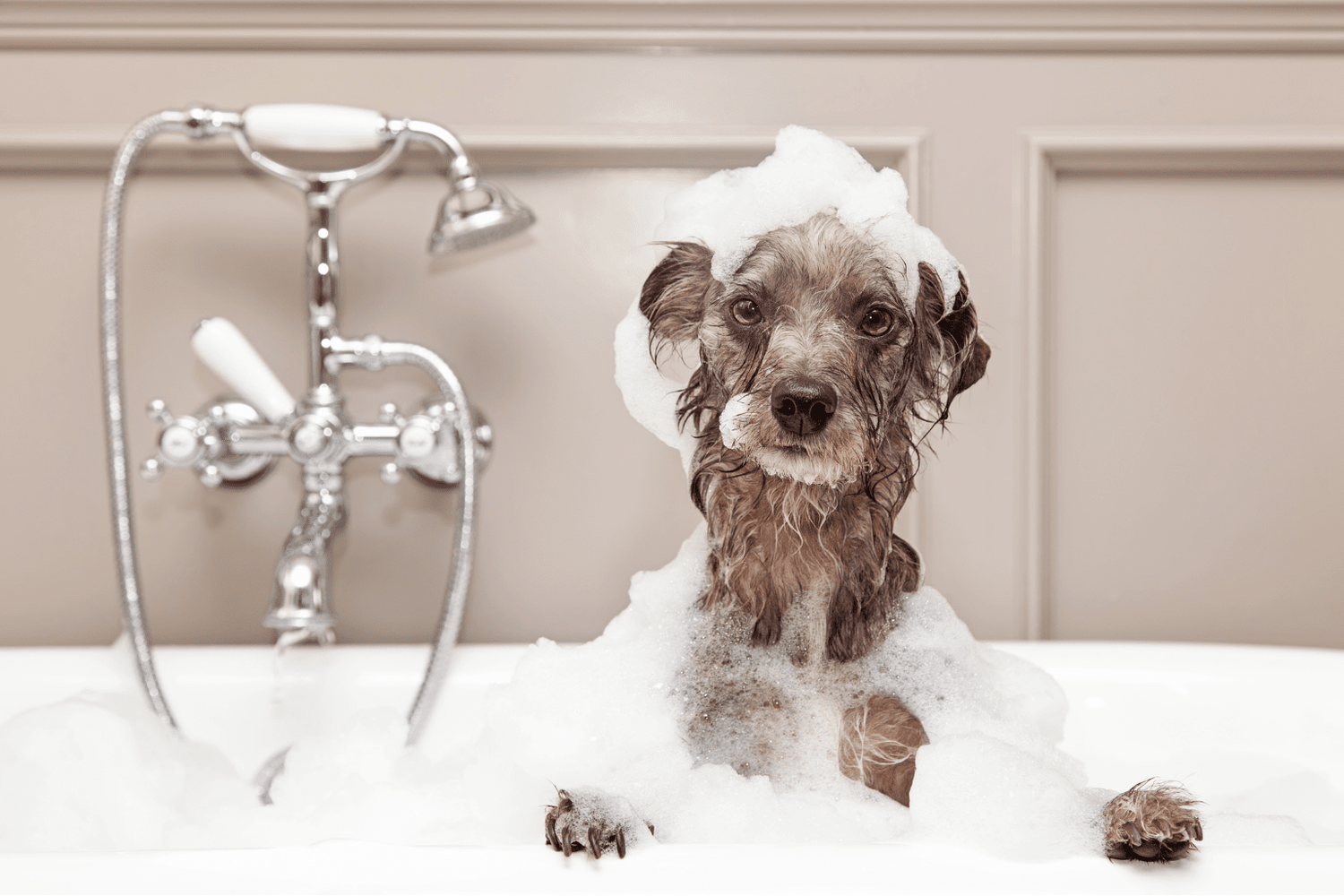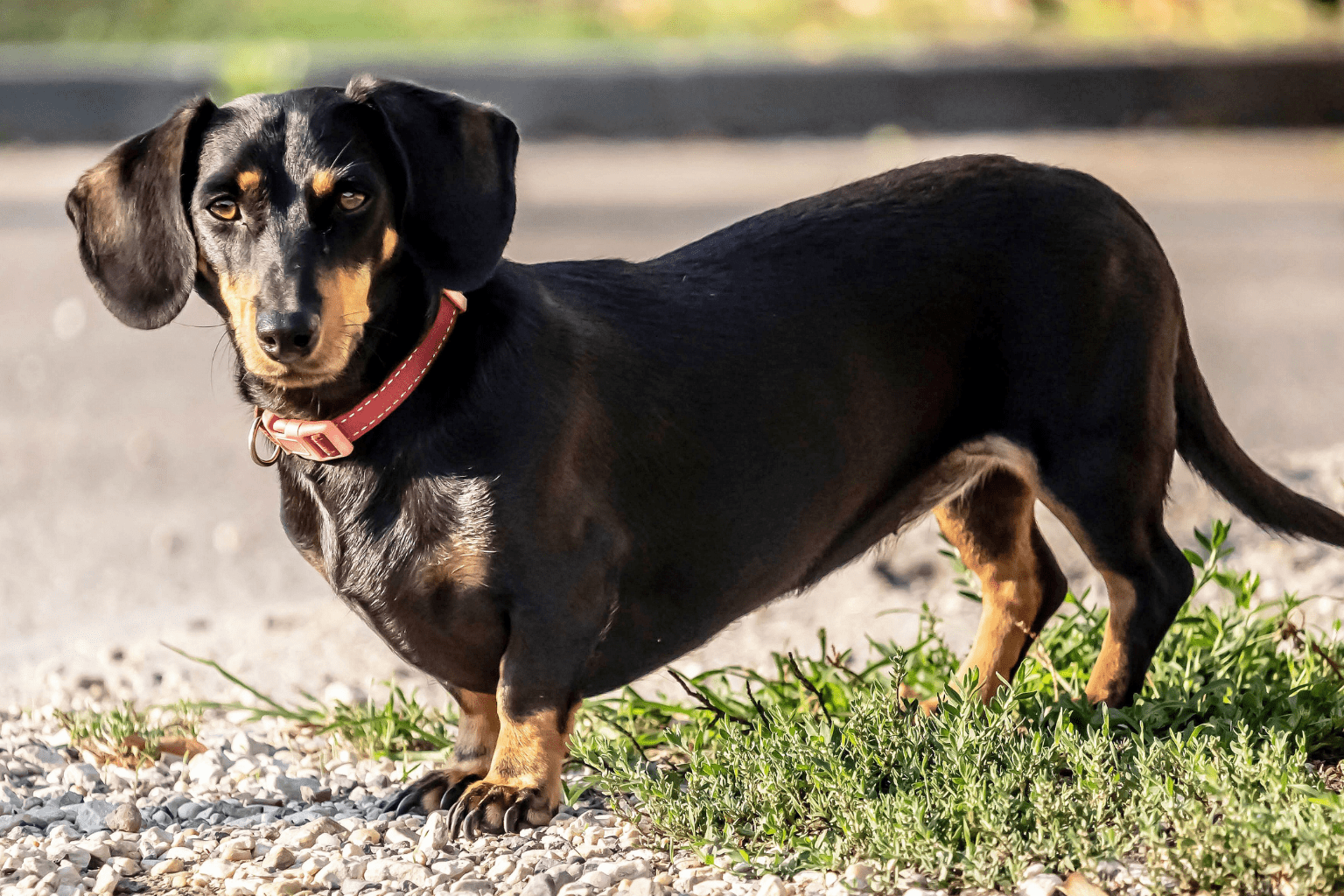Key Takeaways
- Using the wrong substitute for dog shampoo can harm your dog's skin and coat.
- Some household items can safely clean your dog in emergencies.
- It is important to know which alternatives are safe and how to use them properly.
- Avoid products that strip natural oils or cause irritation to your dog's skin.
Table of Contents
- Why Dog Shampoo Is Different: Protecting Your Pet's Skin & Coat
- What NOT to Use on Your Dog (No Matter What's in the Cupboard)
- In an Emergency: Safe, Last-Resort Shampoo Substitutes (Use With Care)
- How To Wash Your Dog Without Dog Shampoo: Step-by-Step Guides
- Natural Cleaning for Dogs: Safe Homemade & Dry Shampoo Options
- Baby Shampoo vs. Baking Soda vs. Cornstarch: Which Substitute Is Best for Your Dog?
- Homemade Shampoos vs. Store-Bought Solutions: How Do They Really Compare?
No Dog Shampoo? Here's What You Can Safely Use (and What NOT To!)
When your pup desperately needs a bath but you're fresh out of dog shampoo, panic mode kicks in. Before you reach for whatever's under the sink, know this: using the wrong substitute can strip your dog's natural oils, cause painful irritation, or even lead to skin infections. The good news? Several household items can safely clean your furry friend in emergencies, if you know which ones work and how to use them properly. Over-the-counter natural treatments for life-long support of dogs & cats general health can also help maintain your pet's well-being between baths.
Your dog's skin is fundamentally different from yours, with a more neutral pH that requires gentle, specific care. While we'll explore safe emergency alternatives, the smartest long-term solution is keeping natural, homeopathic remedies on hand that support your pet's skin health from the inside out. Our Dog Allergy Relief & Immune Support and Healthy Skin & Coat + Fur Regrowth remedies can help maintain skin balance naturally, especially for dogs with recurring skin sensitivities.
Why Dog Shampoo Is Different: Protecting Your Pet's Skin & Coat
Dog skin is thinner and more sensitive than ours, with a pH that's closer to neutral. Human shampoos and soaps are formulated for acidic skin, which can disrupt your dog's natural barrier and leave them vulnerable to dryness, itching, and infection. That's why it's so important to use products designed specifically for dogs, or, in a pinch, only the safest alternatives.
What NOT to Use on Your Dog (No Matter What's in the Cupboard)

| Unsafe Substitute | Why to Avoid | Potential Consequences |
|---|---|---|
| Human Shampoo | Wrong pH level, harsh detergents | Dryness, flaking, skin irritation |
| Cat Shampoo | Contains ingredients toxic to dogs | Poisoning, allergic reactions |
| Bar/Hand Soap | Strips natural oils completely | Severe dryness, cracking, infections |
| Household Cleaners | Chemical toxicity, residue buildup | Chemical burns, poisoning if licked |
| Scented Products | Artificial fragrances, essential oils | Respiratory issues, contact dermatitis |
Human shampoo tops the "never use" list because its acidic formulation will leave your dog's skin tight, flaky, and vulnerable to bacterial infections. Even "gentle" or "moisturizing" human formulas contain sulfates and fragrances that can trigger severe allergic reactions in sensitive dogs.
Cat shampoos might seem like a logical alternative, but they often contain pyrethrins or other compounds that are safe for felines but toxic to dogs. The different skin needs between species make cross-species products a risky gamble with your pet's health.
Regular bar soap, hand soap, and dish soap (for routine use) act like industrial degreasers on your dog's delicate skin. While dish soap has emergency applications we'll discuss later, using it regularly will strip every trace of protective oils, leaving raw, irritated skin that's prone to cracking and infection.
We've all eyed the baby wash in a pinch, thinking "gentle is gentle," but even baby products contain preservatives and pH levels designed for human skin. Save yourself the vet bill and the guilt-inducing whimpers, there are much safer alternatives ahead. For more on what human products are safe for pets, see what human food dogs can eat.
In an Emergency: Safe, Last-Resort Shampoo Substitutes (Use With Care)
When Is It Truly an Emergency?
Reserve these substitutes for genuine emergencies: when your dog has rolled in something toxic, sticky, or dangerous like skunk spray, motor oil, or has a sudden flea infestation. These are not regular bathing solutions, they're rescue measures.
Baby Shampoo - The Gentlest Human Alternative
Best for: Dogs with sensitive skin in true emergencies
Choose fragrance-free, tear-free formulas only. Use a pea-sized amount, lather in your hands first, then apply to wet fur. Rinse thoroughly, any residue can cause irritation. Maximum frequency: once monthly, and only when no dog-safe options exist.
Dish Soap - For Grease and Flea Emergencies Only
Best for: Removing oil, grease, or emergency flea treatment
Dawn or similar grease-cutting formulas work for specific situations. Use a dime-sized amount diluted with equal parts water. Apply quickly, massage gently, and rinse immediately. Follow with a moisturizing step, coconut oil or aloe vera, since dish soap strips everything from the skin.
Vinegar Solution - Natural Deodorizer and Antifungal
Best for: Odor control and mild fungal issues
Mix equal parts white or apple cider vinegar with lukewarm water. Use as a final rinse rather than a scrubbing agent. One cup of solution works for medium-sized dogs. Avoid any open wounds or raw skin, vinegar stings and can delay healing.
Baking Soda - The Odor Elimination Champion
Best for: Strong odors and spot cleaning
Use 1-2 tablespoons for medium dogs, either as dry powder or mixed into a paste with water. Massage into dry or damp fur, let sit for 5 minutes, then brush out completely. Critical warning: Any remaining residue will cause matting and skin irritation.
| Emergency Substitute | Safety Level | Best Use Case | Maximum Frequency | Key Precaution |
|---|---|---|---|---|
| Baby Shampoo | Highest | Sensitive skin emergencies | Once monthly | Fragrance-free only |
| Dish Soap | Medium | Oil/grease removal | Emergency only | Immediate moisturizing needed |
| Vinegar Solution | High | Odor control | Weekly maximum | Avoid open wounds |
| Baking Soda | Medium | Strong odor removal | Bi-weekly maximum | Complete removal essential |
For more tips on keeping your dog healthy in challenging situations, check out what to expect with an adult rescue dog.
How To Wash Your Dog Without Dog Shampoo: Step-by-Step Guides
Step 1: Preparation
Gather your chosen substitute, lukewarm water, old towels, a brush, and treats for positive reinforcement. Test water temperature on your wrist, it should feel neutral, not warm.
Step 2: Initial Rinse
Wet your dog's coat thoroughly, starting from the neck down. Avoid the face initially. Proper saturation ensures even product distribution and easier rinsing later.
Step 3: Apply Substitute
Apply your emergency substitute according to the amounts specified above. Work from neck to tail, avoiding eyes, ears, and genital areas. Massage gently, scrubbing will irritate already-compromised skin.
Step 4: Thorough Rinse or Brush-Out
For liquid substitutes, rinse until water runs completely clear. For dry methods like baking soda, brush systematically until zero residue remains. Incomplete removal causes more problems than the original dirt.
Bailey, our office Lab, once needed an emergency vinegar bath after rolling in something unmentionable at the park. The key was keeping him calm with treats and praise throughout the process, a stressed dog will remember bath time as punishment, making future grooming sessions difficult.
Natural Cleaning for Dogs: Safe Homemade & Dry Shampoo Options

DIY Oatmeal Shampoo for Sensitive Skin
Blend one cup of plain oats into fine powder using a food processor. Mix with two cups warm water and optionally add one teaspoon of baking soda for extra cleaning power. This creates a gentle, moisturizing cleanser that soothes irritated skin while removing dirt.
Coconut Oil as Post-Bath Conditioner
Apply a pea-sized amount of virgin coconut oil to damp fur, focusing on dry patches or areas prone to itching. Massage gently and leave for 5-10 minutes before rinsing. This isn't a cleaning agent, it's therapeutic aftercare that helps restore moisture stripped by emergency washing.
Lemon Juice Rinse for Natural Freshening
Dilute one tablespoon of fresh lemon juice in two cups of water for a final rinse that naturally deodorizes and adds shine. Only use on healthy, unbroken skin, citric acid will sting any cuts or irritated areas.
Dry Shampoo Methods for Quick Freshening
Between emergency washes, cornstarch works better than baking soda for dogs with oily coats, while baking soda excels at odor absorption for dogs with normal to dry skin. Apply sparingly, massage in, wait 10 minutes, then brush out completely to prevent matting.
The key to any homemade solution is understanding that these are temporary measures. For dogs with recurring skin sensitivities or those who need frequent cleaning due to allergies, our Dog Allergy Relief & Immune Support can help address underlying skin imbalances naturally, reducing the need for frequent emergency baths.
Baby Shampoo vs. Baking Soda vs. Cornstarch: Which Substitute Is Best for Your Dog?
Each emergency substitute serves different situations. Here's how to choose the right dog shampoo alternative for your specific need:
| Substitute | Best For | Gentleness | Odor Control | Safe Frequency |
|---|---|---|---|---|
| Baby Shampoo | Sensitive skin, gentle cleaning | High | Moderate | Monthly maximum |
| Baking Soda | Strong odors, oily coats | Moderate | Excellent | Every 6 weeks |
| Cornstarch | Spot cleaning, dry shampoo | High | Good | Weekly for dry method |
For dogs with allergies or sensitive skin, fragrance-free baby shampoo wins. Use a dime-sized amount, lather in your hands first, then apply to wet coat. Rinse twice as long as you think necessary.
When your dog rolled in something truly foul, baking soda's alkaline properties neutralize acids and absorb odors better than other substitutes. However, avoid this on dogs with existing dry skin, it can worsen the condition. For more on skin and coat care, see these bathing your dog tips from VCA Hospitals.
Cornstarch excels for quick touch-ups between proper baths. It absorbs excess oils without water, making it perfect for senior dogs who stress easily during full baths. Always brush thoroughly, leftover powder creates mats.
Real-world tip from our community: Rescue Rachel manages 30+ dogs and swears by cornstarch for quick cleanups after muddy play sessions. "Five minutes of brushing beats an hour of stressed-out bath time," she says.
Homemade Shampoos vs. Store-Bought Solutions: How Do They Really Compare?
Understanding the trade-offs helps you make informed decisions about what can i use to wash my dog long-term:
Homemade Benefits:
- Complete ingredient control
- Lower immediate cost
- Available during emergencies
- Customizable for specific skin needs
Homemade Limitations:
- Inconsistent pH levels
- No shelf life stability
- Risk of ingredient reactions
- Time-intensive preparation
Store-bought formulations undergo pH testing and stability studies that ensure consistent results. Quality brands formulate specifically for canine skin pH (6.2-7.4), while homemade solutions often fall outside this range. For more in-depth information on pet bathing, refer to these pet bathing tips from the AVMA.
BestLife4Pets takes a different approach entirely, our homeopathic remedies support your dog's natural skin healing from the inside out. Rather than focusing solely on external cleaning, our Dog Allergy Relief & Immune Support and Healthy Skin & Coat + Fur Regrowth formulas help maintain skin balance naturally. This means fewer emergency bath situations and healthier skin that's less prone to irritation, odor, and sensitivity issues.
Not a substitute for professional veterinary advice.
Frequently Asked Questions
What is the best substitute for dog shampoo?
The best substitutes for dog shampoo in an emergency are diluted baby shampoo, a gentle baking soda and water mixture, or cornstarch. These options can clean your dog temporarily without stripping natural oils or causing irritation, but they should be used sparingly and with care to protect your pet’s sensitive skin.



